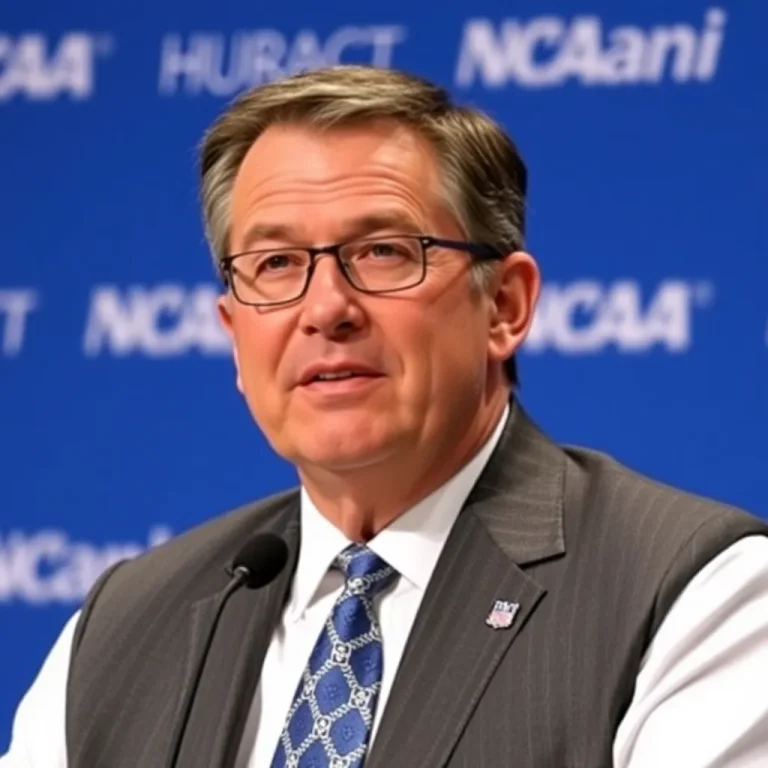NEW YORK — The president of the NCAA, Charlie Baker, is sending a strong message to schools and conferences tempted by lucrative deals from new equity sources. Speaking at a recent Big East roundtable focusing on the future of college basketball, Baker urged caution. “My message to everybody on this would be really simple: Be really careful,” he stated.
With rising pressure on schools and conferences to find funds to pay their players, there are increasing reports of negotiations with equity sources in college sports. A recent focus has been on the Big Ten conference, which is considering a $2.4 billion deal to bring in an investor for marketing its media rights and other properties. However, a meeting last week among conference presidents and chancellors did not produce a vote on the matter, with Michigan and Southern California objecting. Michigan regent Jordan Acker criticized the proposal as a rushed solution to ongoing challenges.
The Big Ten defended its potential partner, asserting that the investment arm of the University of California pension system is not a private equity firm, but a nonprofit looking for a profit on its investment. “Ultimately, it is the decision of the Big Ten member institutions’ presidents and chancellors to decide if it’s the right opportunity,” the conference said.
Baker emphasized the importance of thinking long-term in college sports. “If I’ve learned anything about college sports, it’s very hard to get anybody to think past tomorrow. … People should be thinking very hard about the long term, especially concerning the kids,” he said. He also discussed the possible expansion of the NCAA Tournament and the issue of college sports betting.
Baker expressed support for expanding the tournament, which could allow for potentially 76 teams. While he pointed out that this could create logistical challenges, such as moving teams quickly, he believes the benefits could outweigh the downsides. If more money comes in from television partners for the expanded tournament, schools may be encouraged to invest more into college basketball.
Moreover, Baker is keen on protecting the automatic qualifiers and ensuring a diverse range of teams competes in the tournament. He recalled St. John’s as an example of a team that would have benefited from such an expansion in the past.
On the topic of betting, Baker confirmed that the NCAA is progressing towards allowing athletes and staff members to lawfully bet on professional sports. The initial approval from the Division I Administrative Committee is pending confirmation from Divisions II and III by the end of the year. This shift is notable since enforcement cases around sports betting violations have surged recently, with some student athletes facing bans for betting on their own games.
Baker stressed the NCAA’s commitment to maintaining integrity within sports betting, stating, “We run the largest integrity program in the world on sports betting across all the various games.” He acknowledged recent issues involving student athletes and reassured that the NCAA is focused on resolving such challenges.


